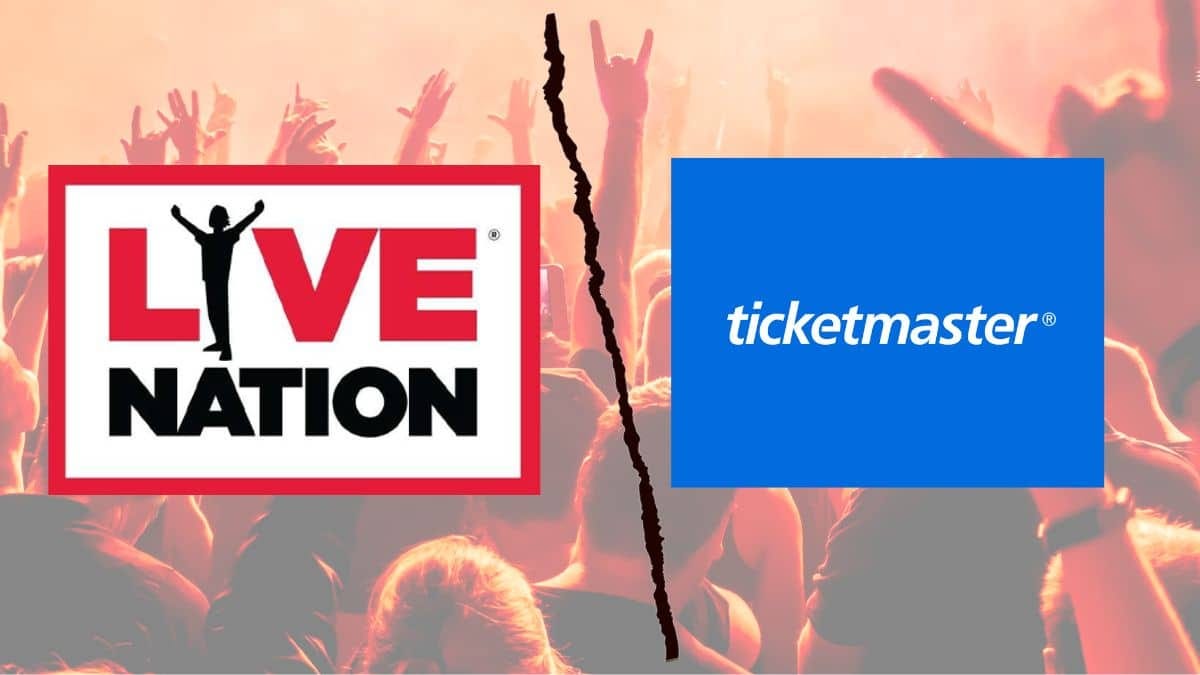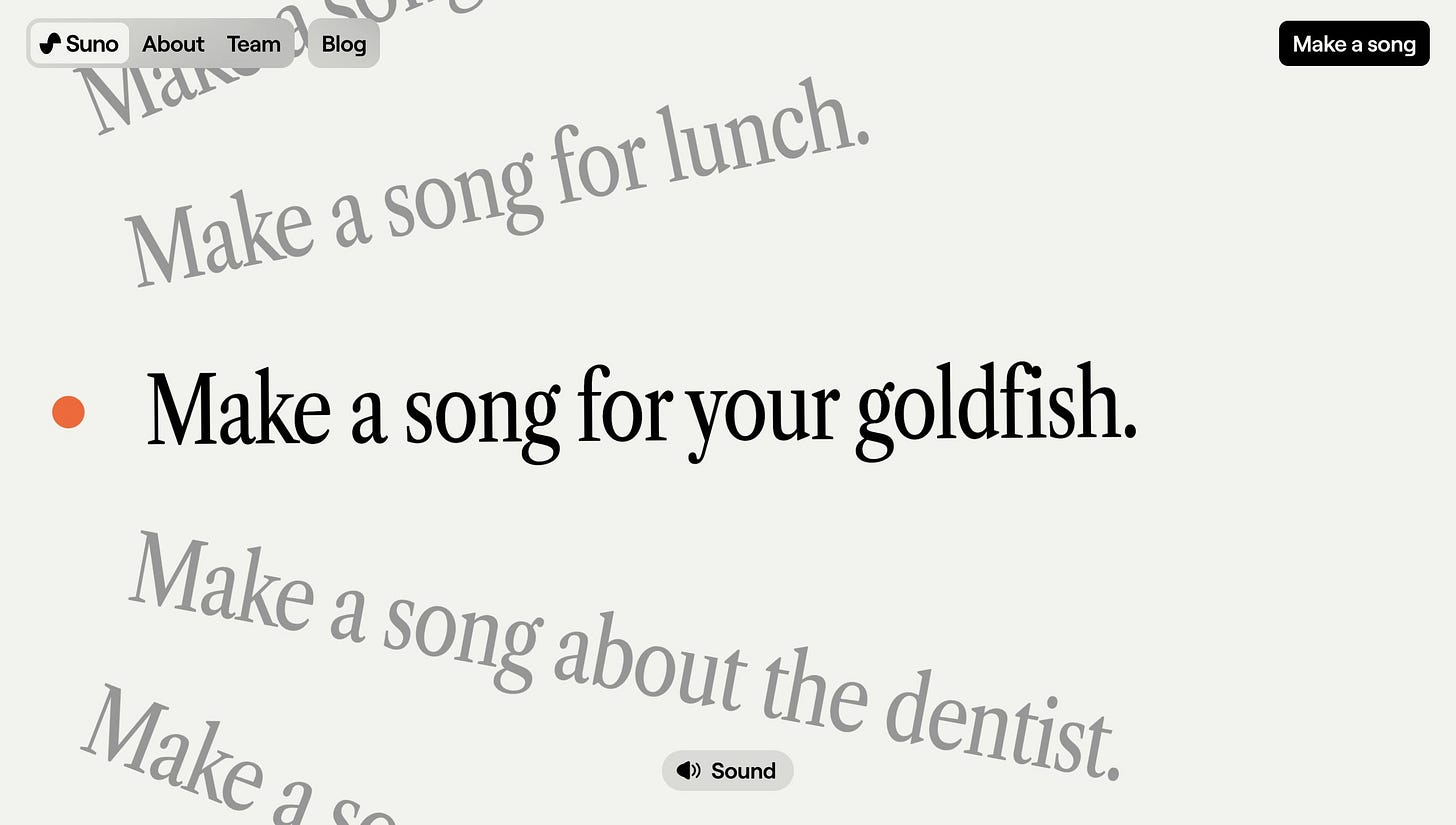DOJ vs LiveNation + Ticketmaster = Your Tickets Won't Be Cheaper
...and other stuff you won't read because you're already in vacation mode
DOJ Sues Live Nation: What It Really Means for Ticket Prices
From the AP:
Justice Department says illegal monopoly by Ticketmaster and Live Nation drives up prices for fans.
The DOJ filed a sweeping antitrust lawsuit against Ticketmaster and parent company Live Nation Entertainment on Thursday, accusing them of running an illegal monopoly over live events in America — squelching competition and driving up prices for fans.Spoiler alert: Ticket prices aren't going down.
I usually avoid news items that you’ll be bombarded with, but can’t help myself here. The DOJ’s lawsuit against Live Nation and Ticketmaster won’t lower ticket prices. While it might benefit other promoters by allowing them to use different platforms, any trickle-down effect for consumers is unlikely.
Two years ago, I wrote about how e-book prices soared when the government intervened in the Amazon Kindle case. Under the guise of helping consumers, the result was higher costs, benefiting publishers who hated Amazon's low pricing. Similarly, concert fees help promoters and ticket companies profit, often with acts sharing in these fees while publicly condemning them.
Many of you know this, but the general public never catches on.
Fees are also integral to the concert ecosystem, covering costs the artists don't. Do fans think everything that takes place in a venue is without cost? When you step foot into a Mercedes dealership and see the nail salon and barista, you don’t think that’s not built into the price? Although Live Nation has started bundling fees into ticket prices, artists resist this transparency, preferring to blame Ticketmaster for high costs. Nothing here will really change because artists love to have a scapegoat.
Removing exclusive venue contracts won't save you money. Venues will find other ways to cover lost revenue, keeping ticket prices stable.
You can hate Ticketmaster all you want, but they have the best system for handling high-demand sales despite glitches often caused by bots. The secondary market inflates prices further, capturing value the artists don't see, prompting artists to raise their prices — or sell them on the secondary market themselves. Tony D got caught on a recording scalping Metallica’s tickets in coordination with LiveNation — but the fans don’t read the WSJ and refuse to blame their heroes because they’ve been conditioned to hate LN/TM.
High ticket prices stem from the secondary market, not Ticketmaster. DOJ efforts should focus here. Exclusive contracts allow promoters to profit from resales, but breaking this link won't lower prices.
While the DOJ aims to help consumers, nothing I’ve seen in this lawsuit will actually reduce ticket prices. The concert industry is a high-risk, low-margin business. Artists will continue to set high prices because fans are willing to pay.
Bottom line: Even if the DOJ wins, which isn't guaranteed, ticket prices won’t drop. Addressing the secondary market is the only way to lower costs, but that’s a complex issue involving consumer behavior and market dynamics.
Suno's Record-Breaking $125 Million Funding Round:
What It Means for Music AI
On May 21, 2024, music AI startup Suno announced a $125 million funding round, the largest ever for a music AI startup and the biggest music-tech investment in over three years.
Why It Matters: Suno’s rapid user growth, technical prowess, and significant media coverage (Bloomberg, Rolling Stone) have generated industry buzz. Their social following has surged by over 200% since January 2024, but I see so many startups use bots, so I’m not sure that’s a true indicator.
Controversy: Suno's data practices are under scrutiny. Fairly Trained CEO Ed Newton-Rex suggests their AI may use copyrighted music without proper licensing, a concern echoed by Billboard. The lack of licensing deals with major labels could lead to legal challenges.
How Suno Stands Out
Capital: Suno’s $125 million investment is the largest in music AI, surpassing ElevenLabs ($80 million), Splash Music ($20 million), Podcastle ($13.5 million), and Udio ($10 million). Despite competition from tech giants like Google and Meta, this shows growing investor interest in standalone music AI products.
User Adoption: Suno reached 10 million users in eight months, a milestone that took Spotify four years. This success is driven by Suno’s broad target audience, aiming to be a creative tool for everyone, not just industry insiders.
Investors & Partners: Unlike other music AI companies, Suno lacks significant music-industry investors, raising questions about its long-term industry support, especially if legal issues arise. But having spent far too long in that industry, I think the lack of those influences is likely why Suno is experiencing rapid growth and user adoption. I can’t tell you how many times I brought a new idea to a stakeholder only to be met with glacier-like speed in decision-making while they contemplated doing anything that upset their archaic paradigm.
Suno’s Place in Music-Tech
Most of the largest music-tech funding rounds occurred between 2010 and 2018, benefiting streaming platforms and music hardware manufacturers. The market has since cooled due to factors like COVID-19, industry consolidation, and high music licensing fees.
Suno’s funding is one of four major music-tech investments since 2018, signaling a new era of investment focused on creator tools and generative AI. Other notable rounds include:
NetEase Cloud Music: $700 million (2019), with 44.1 million paying users in 2023.
Epidemic Sound: $450 million (2021), generating 2.5 billion plays per day on YouTube and TikTok.
DICE: $122 million (2021) and $65 million (2023), focusing on social discovery and ticketing of live concerts.
What’s Next for Suno?
Suno’s funding round signals continued innovation and disruption in the music-tech industry. The company is focusing on community engagement, brand recognition, influencer partnerships, and mobile apps to broaden its reach and stand out from competitors.
Despite industry concerns, Suno is not currently hiring legal staff, indicating confidence in navigating potential legal challenges.
THE NEWS DESK
Music, Media, & Entertainment
Scarlett Johansson’s voice was not copied by OpenAI for ChatGPT. WaPo tracked down the actual voice actress, who confirmed that neither Johansson nor the movie “Her” were ever mentioned by OpenAI. The actress’s natural voice sounds identical to the AI-generated Sky voice, based on recordings of her initial voice test reviewed by The Post. Her agent said the name Sky was chosen to signal a cool, airy and pleasant sound.
Read More → wapoDolly Parton, who’s been retired from touring for years, is set to launch a “multimedia symphonic storytelling experience” of her music and legacy that will go on tour next year. Read More → variety
CBS’ 60 Minutes wrapped its 50th consecutive season as the No. 1 television news program, according to Nielsen figures. Read More → axios
Sean "Diddy" Combs' music catalog streaming drops 52% amid multiple allegations of sexual assault; Combs apologized over the weekend after 2016 surveillance video surfaced showing him attacking his ex-girlfriend.
Read More → hrThe Snoop Dogg Arizona Bowl presented by Gin & Juice By Dre and Snoop will take place December 28.
Sigh. Read More → usatoday
E-Commerce & Retail
An OnlyFans creator earned over $90K selling jars of her bathwater in 2019. PayPal only released her money this week. Headline of the year candidate?
Read More → businessinsiderAmazon drivers will pick up returns from customers’ houses and bring them to its facilities for processing. The pilot program will begin in Texas and Florida. I expect it to be pitched as a convenience, but make no mistake — this is Amazon’s next step in completely removing any reliance on UPS.
Read More → theinformationBuy now, pay later platforms like Affirm and Bread are getting credit card-like protections after a ruling by the US Consumer Financial Protection Bureau.
Read More → fastcompanyBEGS (Bitcoin, Ethereum, gold, and silver) are hitting record valuations as investors look to shore up alternative assets.
Read More → axios
Tech, Web3, & AI
TikTok is planning another round of significant job cuts. The layoffs will affect a large percentage of the roughly 1,000 people working in TikTok’s content and marketing groups. Read More → theinformation
AI startup Anthropic announced that it’s finally starting to understand how neural networks — the engine of AI — actually work. Believe it or not, this is a breakthrough for the industry. Read More → wired
Spotify is the latest consumer app to make its own font. The new Spotify Mix sans-serif typeface will replace the current circular font Spotify uses on its app and desktop versions. Read More → spotify
Netflix ads reach just 10% of its subscriber base vs 90% of Prime Video users (who were automatically defaulted to ad plans). Amazon’s ads business is already huge but is likely to get a lot bigger. Read More → richholmes
Misc.
Bark Air, a new airline for dogs, is set to take its first flight.
Saving you a click: Flights start at $6,000.
Read More → cbsnewsGeologists discover evidence of a now-dry branch of the Nile River near the Giza Pyramids; which may help explain the pyramids' location and how they were built. Read More → qz
A Virginia lighthouse is for sale. It can be yours for $450k.
Read More → washingtonianThe first Mexican taco stand to get a Michelin star is a tiny business where the heat makes the meat. Read More → ap
Chipmunks vs. Squirrels: What’s the Difference? Well, first of all, squirrels are incredibly awesome. Read More → mentalfloss
Deep Reads
Are Gen Z geniuses? No, it’s just grade inflation
America’s schools embarked on significant grade inflation during the pandemic, and GPAs haven’t decreased since. Troublingly, ACT scores are dipping at the same time, a symptom teachers are attributing to “forced equitable grading” and policies such as prohibiting penalties for late work, setting a minimum grade of 50%, or allowing test retakes (but not if the student scored above 80%). Proponents of the idiot awards say this is a “mastery-based” framework, arguing late, missing, or low-quality work are mere details that obscure a student’s ‘true progress.’ But in just a few more years, this pandemic-era cohort of students will enter the workforce, and corporate America will be left to pick up the pieces. A small consolation for our business leaders: Zayden may not show up to work, but by then we’ll (hopefully) have a ‘Zaybot’ AI model to do all of the work he was going to half-ass anyways. Read More → WSJNeuralink’s First Patient: ‘It Blows My Mind So Much’
Noland Arbaugh, Neuralink’s first human patient, talks to Bloomberg about how the brain implant that allows him to control tech with his thoughts has changed his life. The surgery lasted less than two hours. As Arbaugh woke up, he saw his mother hovering over him. They locked eyes and held the stare for several beats, and Mia Neely asked if he was OK. “And he says, ‘Who are you? I don’t know who this is,’” Neely recalls. She broke into tears and was trying to get the attention of a doctor when she caught a smirk on Arbaugh’s face. He’d planned the gag ahead of time. “I wanted to let her know that everything was OK and to ease the tension,” Arbaugh says. Nice. Read More → BloombergAdorable Nudibranchs
Psychedelic hedgehogs, purple pineapples, living strawberries—these tiny creatures show off their big personalities off the Australian coast. There are over 3,000 species of these colorful, obscure slug-like mollusks that inhabit the world's oceans, and one man has spent over two decades cataloging nearly 800 of them—and telling anyone he can about them.
Read More → smithsonian








